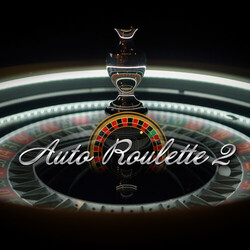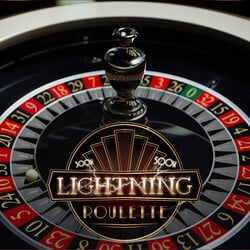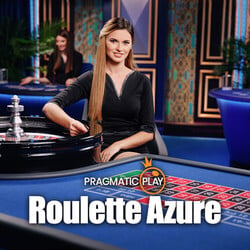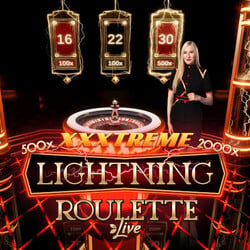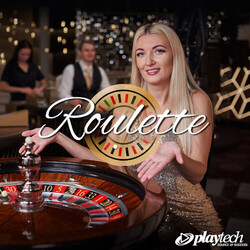As roulette was invented in France, there’s something very right about playing French roulette, rather than the European or American versions.
Aside from the authentic flavour of a game that hasn’t changed much in centuries, the best part about this variant is its house edge – the lowest of all roulette games.
In this guide, I’ll explain how to play French roulette, why it’s different to other types of roulette and why it’s a better option for your bankroll.
Ready to feel the FUN? Here are some games you can check!
French roulette rules
The rules of this game are no different to European or American roulette. You can learn how to play roulette in our complete roulette guide and it’ll stand you in good stead for the French version, but here are the basics of this famous random numbers game:
- Roulette wheel with 37 numbered pockets
- Roulette table with a range of bets based on numbers and colours
- Players bet on the number they think will be chosen next
- Croupier spins wheel, releases ball and pays out winning bets
French roulette wheel
The numbers on a French roulette wheel are the same as those you’ll find on any European roulette wheel, and in the same order too.

There are 37 numbers from 1 to 36, and a single green zero. Half of the numbers are red, half are black and they alternate from red to black around the wheel.
French roulette table layout
The French table is very similar to a European roulette table, with 12 rows of 3 numbers in a grid. The numbers increase in sequence from 1 to 36, alternating red and black, with the zero section stuck on the left hand end.
The numbers make up the inside betting zones, and the sections below and to the right contain outside bets such as red or black, dozens and columns. On some tables, the outside bets will be displayed using French roulette terms such as “12p” for premier douzaine (1st dozen), “pair” for even and “impair” for odd.
There may also be an oval called the racetrack which displays the numbers in the same order they appear on the wheel. Racetrack bets are for die hard French roulette players, and we’ll get to those shortly.
Bet types & payouts
When you play French roulette online, you can choose the lowest variance bets like red or black that win around 48.6% of the time, or go to the other extreme and bet on individual numbers, which have only a 0.027% chance of being chosen.
But pick a single number correctly – the holy grail of French roulette – and you’ll be handsomely rewarded with a 35x multiplier, in online slots lingo.
There are over 30 different French roulette bets, and they fall into one of 3 categories:
- Inside,
- Outside,
- Or special bets.

Inside Bets
You’ll find these inside the grid of numbers on the French roulette table layout. Inside bets have the biggest odds.
| Name | Numbers Covered | Payout |
| Single number | 1 | 35 to 1 |
| Split | 2 | 17 to 1 |
| Street | 3 | 11 to 1 |
| Square | 4 | 8 to 1 |
| Six line | 6 | 5 to 1 |
Outside bets
You can guess where to find outside bets by now. These are the most likely to come in, but they also have the lowest roulette odds. Even money or evens bets like black or red are basically double or nothing bets that come in about half the time.
| Name (French name) | Numbers Covered | Payout |
| Column (12) | 12 | 2 to 1 |
| Dozen (12) | 12 | 2 to 1 |
| Red or Black | 18 | 1 to 1 |
| Odd or Even (Impair or Pair) | 18 | 1 to 1 |
| High or Low (Passe or Manque) | 18 | 1 to 1 |
Even money bets have special status at the French roulette table. They are all affected by the single most important rule which produces the best value bets in the roulette world.
La Partage rule
This rule is really the only difference between French roulette and European roulette, and it’s great news for players.
Place a bet on any even money bet – red or black, odd or even, 1-18 or 19-36 – and if the ball lands in zero, you get half your stake back. At a European roulette table, these bets have a house edge of 2.7%, and it’s even more (5.26%) at a US roulette table with a double zero. But thanks to the La Partage rule, even money bets are just 1.35%.
En Prison rule
This is a variation of the La Partage rule where your bet is trapped until the next spin, hence the name of the rule. Instead of getting half your stake back, the croupier will keep your bet in place for the next spin, giving you the chance to get a full refund.
If your bet ‘wins’, you only get your stake back. If it loses, it loses. It you hit zero again, your bet stays in prison for another spin. French roulette’s En Prison rule means can’t win, you can only lose or get your full stake back.
The financial outcome of both rules is the same, it’s just the journey that’s different. With La Partage, you get 50% of your stake back 100% of the time (that zero hits). With En Prison, you get 100% of your stake back on the next spin, around 50% of the time.
Special bets
Inside and outside bets are the bread & butter of French roulette. But there’s a whole other class of bets, favoured by experienced roulette players, that lets you bet on sections of the wheel or groups of numbers, with one click.
They’re sometimes called sector bets, and sometimes announced bets or call bets, as you can (and sometimes have to) call them out to the dealer who will the place them for you.
Fittingly for French roulette, these generally have French names. The unusual names like Tiers Du Cylindre can deter new roulette players, but they are actually a lot easier to understand than they seem. Don’t let the unfamiliar names and many different options discourage you from giving them go.
Neighbour bets
The racetrack is a popular feature with experienced roulette players but it’s actually a very simple concept. The racetrack itself is an oval recreation of the wheel, where the numbers are in the same order.
By clicking on a number, you can bet on numbers either side of them. You can change your neighbours settings to bet on 2, 3 or more numbers either side.
The racetrack also includes several neighbours roulette bets such as Tier du Cylindre, Orphelins, Voisins and Zero together cover the entire wheel.

Specials bets
If you really want to become an expert in French roulette, you’ll need to know your specials too. In a brick & mortar casino, you probably won’t see these advertised on the table, but as ‘announced bets’, you can ask the dealer to place one for you.
Finale en plein is a series of bets on all numbers with the same last digit. Finale en plein 3 is a bet on 3, 13, 23, 33, which costs 4 chips.
Finale a cheval takes it 1 step further, combining 2 last-digits. A finale a cheval 1/4 bet covers all numbers ending in 1 or 4 (that’s 1, 4, 11, 14, 21, 24, 31 and 34). Finale a cheval bets can include split bets as well as singles, we can usually cover with 1 chip. With the example above, we can cover the 8 numbers in 4 split bets.
A ‘complete’ bet is the last special bet and one of my favourites. For the cost of 30 chips, you cover every possible inside bet relating to a number of your choice. A complete 14 includes a single bet on red 14 plus all of the surrounding splits, streets, squares and six lines.
Complete bets on 0 and the 6 numbers at the edges of the French roulette grid (1, 2, 3, 34, 35, 36) cost only 17 or 18 chips, as there are fewer surrounding inside bets to play.
Complete is sometimes called a ‘maximum’, when high rollers bet the maximum amount for all of the associated inside bets. In 2008, billionaire Mike Ashley won a complete bet on 17 for a £1.3 million payout, to become one of the most famous roulette winners ever.
If like me you happen not to be a billionaire, you can let the croupier know your unit stake by calling “Complete 14 for £5”, and the dealer will place 30 x £5 bets for you. Or you can just play Live French Roulette online and let your mouse do the work.
House edge
As we’ve seen, French roulette is almost identical to European roulette except for the La Partage rule. This means it has the same house edge or Return To Player (RTP) for most bets except evens.
Even Money Bets = 98.65%
All Other Bets = 97.30%
As well as the lowest French roulette house edge, you’ll also get money back on every spin if you play French roulette at PlayOJO, through OJOplus. Every chip counts.
How to play French roulette
Once you’ve found a table, it’s possible to learn how to play roulette and master this table game in minutes.
Step 1: Signup and play for free or deposit
Unless you’re lucky enough to visit a French casino, you’ll need to play online. Pick a licenced online casino like PlayOJO and create your free account in seconds.
You can practice French roulette risk-free using our classic French Roulette Pro tables, but if you want to play Live French Roulette, you’ll need to fund your account and play from £1 per spin.
Pick your preferred payment method, deposit £10 or more and you’ll instantly get 50 Free Spins with no wagering requirements (T&Cs apply).
Step 2: Pick a French roulette table
Your first decision is whether to play a live dealer game or a classic internet French roulette powered entirely by software. Live French roulette games are live streamed 24/7, and run by professional, friendly dealers.
But if you want your own private table, or you want to get more spins in per hour, then a classic interactive French roulette table may be a better option.
Step 3: Place your bets
Every French roulette table will have table limits – minimum and maximum bet sizes for each bet type. At a live roulette table, you’ll have around 30-40 seconds to place your bets.
Pick the appropriate chip value and tap on the inside, outside or special bets of your choice and either wait for the croupier to spin the wheel, or tap Spin yourself.
There are no successful roulette strategies, so I would recommend you avoid roulette systems completely. Stick to bet sizes you can afford to lose and focus on bet types with the lowest house edge.
Step 4: Get paid out if you win
Once the ball has dropped into the winning number, the croupier will place a marker called a dolly on the winning number. If you’ve won, the croupier or software will pay out your winnings and leave your winning bet in place for the next spin. If you don’t want to repeat your, take it back before No More Bets is called.
FAQs
What is the difference between French roulette and European roulette?
French and European roulette are virtually identical, using the same wheel configuration, table layout and bet types. There is really only one significant difference, the use of the French roulette La Partage rule where you get half your bet back on even money outside bets if zero hits. That one deviation from European roulette rules reduces the house edge in the French version from 2.70% to 1.35% for even money bets like red or black.
As far as French roulette vs American roulette goes, the American version uses a different sequence of numbers on the wheel, a double zero and a higher house for all bet types.
Can you really win at roulette?
In the short term – over 1 spin or even a series of several hundred spins – anyone can win at roulette, if luck goes their way. But roulette is a game of chance with no skill, so in the long run, it is impossible to overcome the house edge and make a consistent profit.
How much do you win if you hit 0 or 00 in roulette?
The green zero is treated as a single number, with French roulette payout odds of 35 to 1 in all types of roulette. The double zero in American roulette is also 35 to 1. If you bet £10 on zero in any type of roulette, you’ll win £350 and get your £10 stake back too.
Why should you never play roulette?
You could say that in roulette, and all gambling games, the house always wins. The fact that you cannot beat the house in the long term is one reason some people might say you should never play roulette, or to recommend a game like blackjack which has an element of strategy, instead.
But clearly there are reasons to play roulette too, as it’s been one of the most popular gambling games for the last 300 years. Provided you learn the key rules of the game, understand the nature and risks of playing and gamble safely, there is no reason to avoid roulette, if you find it entertaining.




